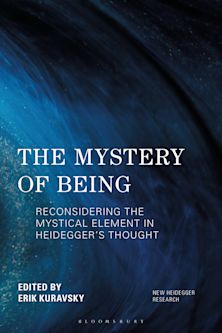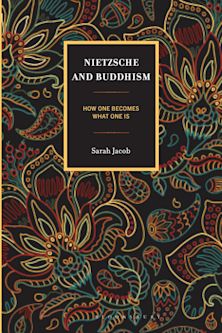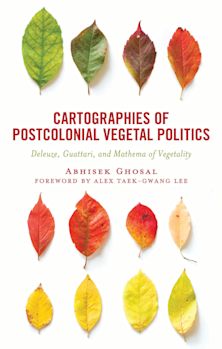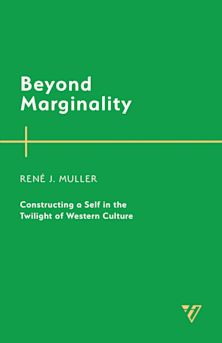- Home
- ACADEMIC
- Philosophy
- Philosophy - Other
- Philosophy in Philosophical Counseling
Philosophy in Philosophical Counseling
Unasked Questions, Open Answers
Philosophy in Philosophical Counseling
Unasked Questions, Open Answers
You must sign in to add this item to your wishlist. Please sign in or create an account
Description
Philosophy in Philosophical Counseling: Unasked Questions, Open Answers offers a base for criticizing approaches to philosophical counseling that fail to be philosophical or relevant to the counselees' concerns. It analyses the impact of tacit, unexamined, philosophical assumptions and examines their influence on the search for solutions, while explaining how such assumptions may obstruct that search. Ora Gruengard argues that conversations in which the participants disagree with each other are the adequate context for calling tacit assumptions into question and exploring alternatives. Her research shows how philosophical assumptions change in informal conversations and illuminates their important role in education, religious guidance, and psychological treatments. Nevertheless, philosophical issues are best dealt with in explicit philosophical dialogues in which counselees are respected as philosophical partners who are encouraged to think critically and make their own judgments. This book addresses counselors' dilemmas by presenting examples of hypothetical counseling conversations and true sessions with real people. Gruengard also discusses what kind of philosophical knowledge and expertise is necessary for doing the job adequately.
Table of Contents
Chapter One: Philosophical Questions
Chapter Two: Coping with the Questions of the Counselees
Chapter Three: The Philosophical Counselor
Chapter Four: Some Concrete Examples
Chapter Five: Who Does Not Need Academic Philosophy?
Chapter Six: The Irrelevance of Philosophy: The Scientific Perspective
Conclusion: The Relevance of Philosophy
Appendix A: Wisdom: Knowing When to Decide Rationally to Be Non-Rational
Appendix B: Philosophical Controversies
Appendix C: Philosophical Influences and Presuppositions in Psychotherapy
Product details
| Published | Jul 25 2023 |
|---|---|
| Format | Ebook (PDF) |
| Edition | 1st |
| Extent | 250 |
| ISBN | 9781978793828 |
| Imprint | Lexington Books |
| Series | Philosophical Practice |
| Publisher | Bloomsbury Publishing |
About the contributors
Reviews
-
Ora Gruengard’s eloquent book is a noteworthy addition to the expanding descriptive and explanatory literature on philosophical counseling or practice. In its carefully researched and expertly presented chapters, Dr. Gruengard responds to the allegation that theoretical or academic philosophy is largely irrelevant to philosophical practice or counseling. She discusses what philosophy in counseling is, is not, and ought to be in no uncertain terms by contrasting it with practices such as religious indoctrination, political propagandizing, clinical psychology, and so on. She offers a carefully detailed discussion of the minimal philosophical education required of anyone planning to enter the counseling or therapeutic professions. Dr. Gruengard combines a historical perspective on philosophy with its current application in counseling and therapy in a clear style accessible to professionals, students, and interested lay readers alike. She warns potential patients to beware of counselors and therapists trained exclusively in psychotherapy. Many attempt to appropriate the historical legacy of philosophy by dishonestly claiming that their psychiatric methods are in fact philosophical. This book is an easy-to-read, deeply satisfying, and convincing argument that philosophy is indeed relevant, not only to various practitioners and counselors but to everyone. It’s an important addition to any student’s or practitioner’s library.
Peter Raabe, University of the Fraser Valley
-
Ora Gruengard presents an erudite and insightful treatment of core issues not only in contemporary philosophical counseling, but also in the history of ideas that led to the prominence of this growing global movement. Her sharp distinctions between psychological versus philosophical approaches to the human condition are compellingly drawn from her richly-informed perspective as a pioneering practitioner.
Lou Marinoff, Professor of Philosophy, The City College of New York
-
By reflecting a rich variety of examples from philosophical practice and from literature Ora Gruengard shows in a convincing way how fruitful it can be to take everyday experiences as the point of departure for philosophizing. Particularly important is her emphasis of the relevance of philosophical practice also for academic philosophy; taking philosophical practice seriously may lead to a renewal of the understanding of philosophy in our time.
Anders Lindseth, professor emeritus, Nord University

ONLINE RESOURCES
Bloomsbury Collections
This book is available on Bloomsbury Collections where your library has access.



































